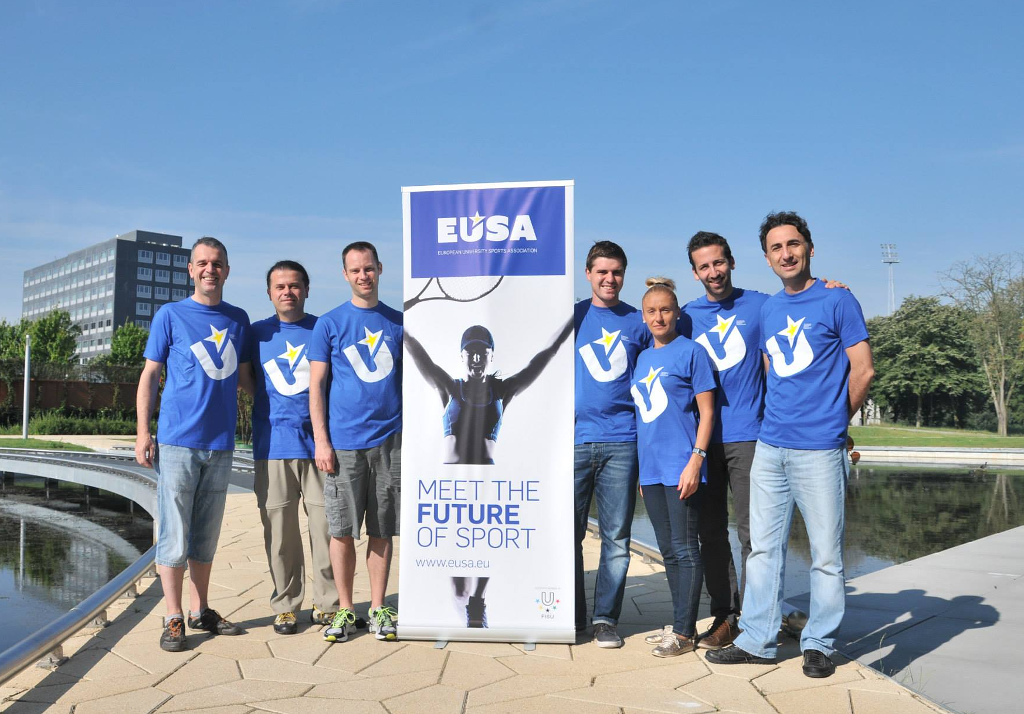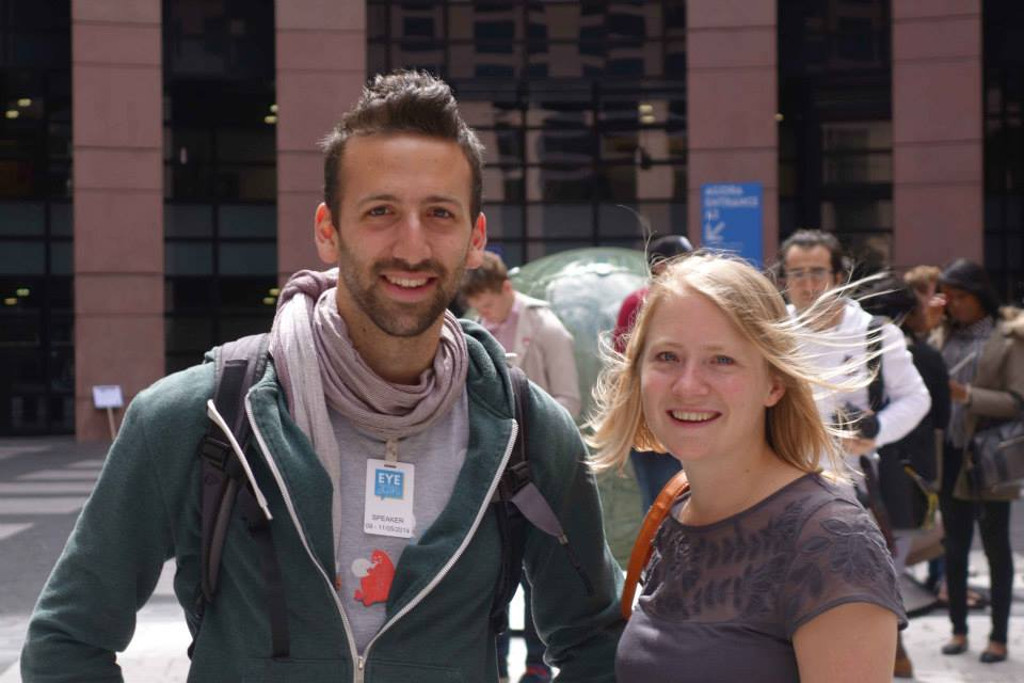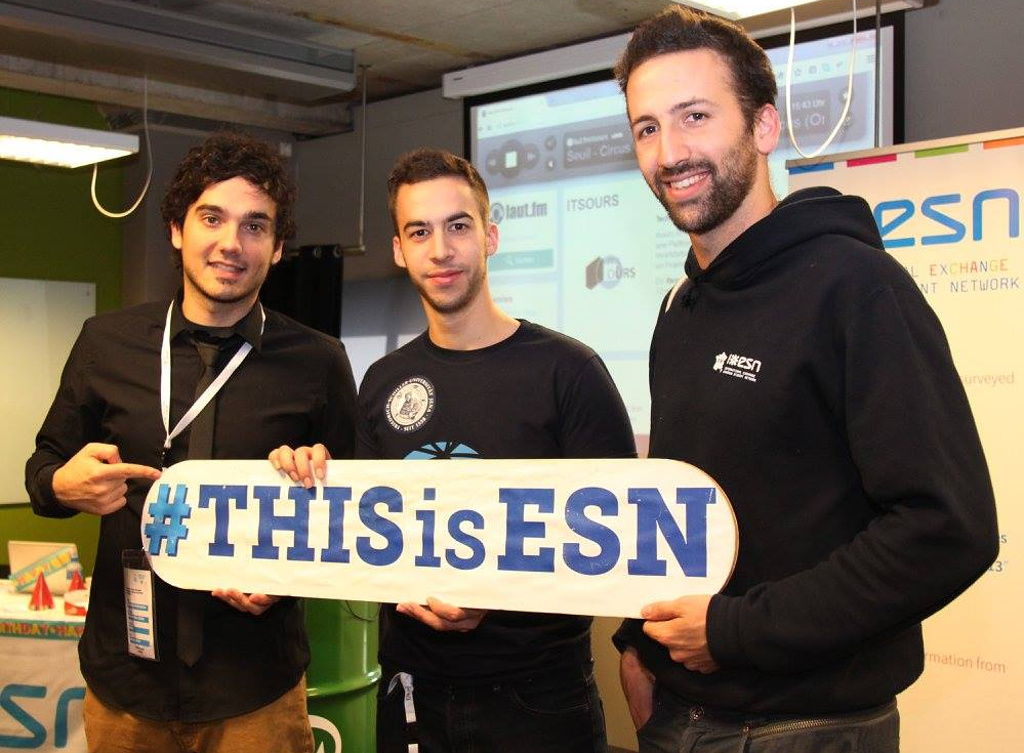What's up: Experiencing Europe – Reconnecting Europeans

This month's EUSA Student Column reflects on the European perspective from an individual's point of view and experiences, also considering the 60th anniversary of the Treaties of Rome and 30th anniversary of Erasmus+ which are being celebrated in 2017.
For the last ten years, I have been experiencing Europe. As I try to put it now: Europe is practice, not a concept for me. As an Erasmus student, as an Erasmus intern, as European Voluntary Service volunteer with International Sport and Culture Association (ISCA), as a volunteer for the European University Sport Association (EUSA), as a volunteer for the Erasmus Student Network but also through my different jobs, Europe has been part of my daily life.
European as an experience, Europe as a practice, Europe part of my daily life, what does that mean? It means that on a daily basis I engage in meaningful interaction with citizens from all European countries. We communicate, exchange ideas, we debate, we help each other, we run organisations and projects together, we live our voluntary engagement and our professional life together. This has been rendered not only possible but also extremely simple through instant, virtually free and flexible communication through social media, through the virtually infinite access to common information online, through the development of online collaboration tools and the decreasing costs and time of international travels. Travelling and international cooperation has never been so technically easy, and the trend will likely go on. This might be a platitude, but it’s worth reminding how much this has changed in the last 30 years. In some ways, Europe in my mental map has shrunken to the size of the city I grew up in. I couldn’t find a good isochrone map of Europe but I’m sure it would be very revealing.
I keep thinking about how incredibly painful it must have been for the first generations of board members of European organisations in the 70’s to coordinate and organise board meetings. We can now fly low cost everywhere, have a collaborative Google Drive agenda and minutes, and look for all the information we need live during the meeting.
What does this imply for my identity? I’ve always defined myself through the geographical level my daily interactions were happening. So for quite some time now, I’ve defined myself through my (multiple) local and European identities. While the opportunities to become European are growing, I am very well aware that my European friends and myself are remaining a statistical oddity as the vast majority of citizens experience their daily lives at the very local or national level. For most of them, Europe is merely a concept built around a flag, the Euro and elections every 5 years of which they don’t really see the importance. But while it remains a small fraction of the population, this European identity, which is not competing with local or national identities is achievable, and beneficial to the future of our European democracies.
Communications are not going to slow down, technical advances will continue, travels are going to get even easier; and globalisation, at least market globalisation at the service of business interests will certainly not stop. If we want to avoid the disintegration of our societies we should ensure we accompany and support the globalisation of citizenship and democracy, starting with the European level which already possess institutional and democratic structures. This change should be supported through the principles of intercultural understanding, active citizenship and meaningful human interaction.
Let’s now step back from our European context, or at least less consider the following as valid for all levels. One of the causes often identified as being the root of the rise of populisms is the decreasing level of trust between citizens and institutions (authorities, media, education system). I believe that an equally dangerous threat to our democracies is the decreasing level of trust between citizens themselves, as groups or individuals (urban versus rural, wealthy versus poor, educated versus less educated, religions versus religions, young versus old, but also sheer individualism.) This is of course caused by a society of extreme individualism, of narcissistic promotion of the self, a society that places individual competition above cooperation, a society that has made individual material wealth the pinnacle of success, a society that replaced the last level of Maslow’s pyramid by a pile of cash. Add to that the commodification of all aspects of our lives and the loss of sense and purpose of our jobs, and you end up in a society where meaningful social/human interaction is reduced to the minimum, where collective organisation for the common good is declining.
What do I mean by meaningful social interaction? The level of interaction with “the other” can be scaled on a ladder:
Being unaware of the existence of the other
Being aware of the existence of the other but no interaction
Self-interest-based communication and exchange (trade, services)
Knowledge and interest about the condition of existence (getting to know through external sources, indirect interaction)
Work or leisure time interaction but not necessarily in a building perspective (colleagues, members of sport club) – not necessarily chosen
Intercultural communication and exchange (getting to learn through communication, travelling, visiting, but not building project together)
Building project, associating for the common interest (political, civic and NGO engagement, project-building, members of a sport team, a music band, to some extent entrepreneurship)
I consider only the last two levels (and to some extent the third one) to be ‘meaningful human interaction’. I believe these two levels are the ones where trust between citizens can be rebuilt. They are the levels where knowledge and ideas are exchanged for the benefits of all involved parties. They are the levels where a sense of common shared purpose and common challenges can be built. They are the levels where an individual sense of purpose can be built in a collective setting. European democracies should encourage and develop these levels of interaction from the grassroots to the European level.
How do we create a society that encourages, facilitates, promote these interactions? How do we equip citizens to more easily engage in these interactions? Some very un-revolutionary leads can be explored, in particular to help our younger citizens through language learning, intercultural learning, gaining competences for democratic culture, applied civic and citizenship education, co-management structures, applied European civic education, experiencing Europe more and observatory for democratic innovation and civic participation. Voilà! These are my 2 cents on how to Reconnect Europeans.
The recent White Paper of the European Commission on the Future of Europe, while failing to address this concern, starts with a famous quote of the Schuman Declaration: “Europe will not be made all at once, or according to a single plan. It will be built through concrete achievements which first create a de facto solidarity.”
European citizens will demonstrate solidarity only if they are given the opportunities to be the driving force behind these achievements.
The author Valentin Dupouey holds a Master Degree in Sports Management from the University of Lorraine, and is currently Secretary of the Young European Federalists (JEF), after (among others) having done internship and volunteering in the European University Sports Association (EUSA).
Are you a student with an opinion? We are looking for new contributors for our student column every month. Feel free to contact stc@eusa.eu to offer a piece or propose a topic.
